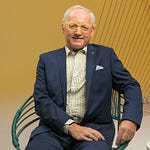
In a world that celebrates charisma, public speaking, and the "power player" archetype, Susan Cain's Quiet: The Power of Introverts in a World That Can't Stop Talking is a revelation. This isn't just a book; it's a manifesto for the silent half of the population, a deeply researched and personal exploration that challenges a deeply ingrained societal bias. Cain masterfully argues that our cultural "Extrovert Ideal" has led to a profound misunderstanding and undervaluing of introverts, and that in doing so, we are losing out on a vast well of creativity, insight, and leadership.
About the Author
Susan Cain is an American writer, lecturer, and the co-founder of Quiet Revolution, a company dedicated to unlocking the power of introverts. A self-described introvert, Cain's own journey from a Wall Street attorney to a full-time writer gives her work a powerful authenticity. Her book, Quiet, became a national bestseller and her TED Talk on the subject has been viewed millions of times, sparking a global conversation and helping countless introverts understand and embrace their true selves. Her work has appeared in publications like The New York Times and The Atlantic, and she has been recognized as one of the world's top leadership and management experts.
Key Takeaways
Quiet is a dense and thought-provoking read, packed with a combination of historical context, scientific research, and compelling anecdotes. The central takeaways are as follows:
1. The "Extrovert Ideal" is a Cultural Construct, Not a Universal Truth: Cain traces the historical shift from a "Culture of Character" in the 19th century, which valued inner virtues like integrity and discipline, to the modern "Culture of Personality."8 This shift, spurred by industrialization and the rise of salesmanship, created the modern ideal of the charismatic, gregarious individual.9 Cain meticulously deconstructs this ideal, showing how it has come to permeate every aspect of our lives, from school classrooms built for group work to corporate offices with open-plan layouts.10
2. Introversion is Not Shyness: This is one of the most crucial distinctions Cain makes. Shyness is the fear of social disapproval, a painful emotion, while introversion is a preference for low-stimulation environments.11 Introverts recharge their energy through solitude, while extroverts gain energy from social interaction.12 This is a fundamental difference in how our nervous systems are wired. Understanding this distinction is key to dispelling the myth that introverts are simply afraid of people.
3. The Power of Working Alone: Cain challenges the "New Groupthink," the belief that creativity and productivity are best achieved through constant collaboration and brainstorming.13 She cites numerous studies to show that groups often suffer from "social loafing" and "groupthink," where individuals' best ideas are lost in the noise or suppressed by a dominant personality. She argues for the power of "aloneness" in creative work, highlighting how deep, focused thought is often the precursor to innovation.14
4. It’s a Spectrum, Not a Binary: The book makes it clear that introversion and extroversion are not two rigid boxes, but a continuum.15 Many people, known as "ambiverts," fall somewhere in the middle.16 Cain also introduces the concept of the "free trait theory," which suggests that we can act out of character for things we deeply care about.17 An introvert might be a captivating public speaker if they are passionate about their topic, but they will need time to recharge afterward.18 This gives introverts permission to stretch their personalities without feeling like they are betraying their true nature.
Leadership Lessons
Quiet offers a powerful new perspective on leadership, challenging the notion that a leader must be the loudest person in the room.19
1. The Power of "Quiet Leadership": Cain uses examples like Gandhi and Rosa Parks to show that transformative leadership doesn't always come from charismatic, attention-seeking individuals.20 Quiet leaders, with their tendency to listen deeply, think before they act, and empower their teams, can be just as, if not more, effective.21 Introverted leaders are more likely to let proactive employees run with their ideas, leading to better results than a highly dominant extroverted leader who might stifle innovation.22
2. The Importance of Listening: In a world that prizes talking, Cain makes a compelling case for the power of listening.23 Introverts, by their very nature, are often better listeners. This is a vital skill for any leader, as it allows them to truly understand their team, identify potential problems, and gather diverse perspectives. A quiet leader who genuinely listens can build a stronger, more trusting, and more effective team.
3. Strategic Solitude for Better Decision-Making: The book argues that introverts' preference for solitude is a key asset in leadership.24 The ability to retreat and think deeply about a problem before making a decision leads to more thoughtful, well-researched, and less impulsive choices.25 Cain contrasts the quiet, methodical approach of an investor like Warren Buffett with the herd mentality that can lead to market crashes, underscoring the value of independent thought.
Implementation in Everyday Life
The lessons of Quiet can be applied to nearly every aspect of our lives.
For Introverts: The book is a permission slip to be yourself. It encourages introverts to:
Embrace Your Natural Strengths: Recognize that your preference for deep thought, focused work, and meaningful connections are not weaknesses, but powerful assets.26
Build a "Restorative Niche": Create a space—at home or at work—where you can retreat and recharge your batteries.27
Be Strategic with Your Social Energy: Choose your social commitments wisely, prioritizing a few close relationships over a wide, draining social circle.28
Communicate Your Needs: It's okay to tell colleagues, friends, or family that you need some time alone to think or recharge.29
For Extroverts: The book serves as a vital tool for understanding and appreciating the introverts in your life.30 It encourages extroverts to:
Create Space for Others: In meetings or group settings, make a conscious effort to invite contributions from quieter team members.31 Ask for their opinions directly.
Appreciate the Power of Silence: Understand that quiet doesn't mean a lack of ideas.32 Some of the most profound thoughts are born in silence.
Learn to Listen: Practice active listening and give introverts the time and space they need to formulate their thoughts before speaking.
For Organizations and Educators: The book provides a blueprint for creating more inclusive and productive environments.33
Rethink the Open-Plan Office: Consider offering quiet, private spaces for focused work.34
Challenge "Groupthink": Encourage employees to work independently on a problem before sharing their ideas in a group setting.35
Empower All Voices: Ensure that leadership and educational structures are not biased towards the loudest or most assertive individuals, but instead value and reward a diverse range of contributions.
tl/dr: In conclusion, Quiet is more than just a book about introverts; it's a powerful call for a more balanced and nuanced understanding of human nature. Susan Cain's work is a reminder that in our fast-paced, high-stimulation world, the greatest power can often be found in the quietest moments, and the most impactful voices are sometimes the ones that speak the softest. 










